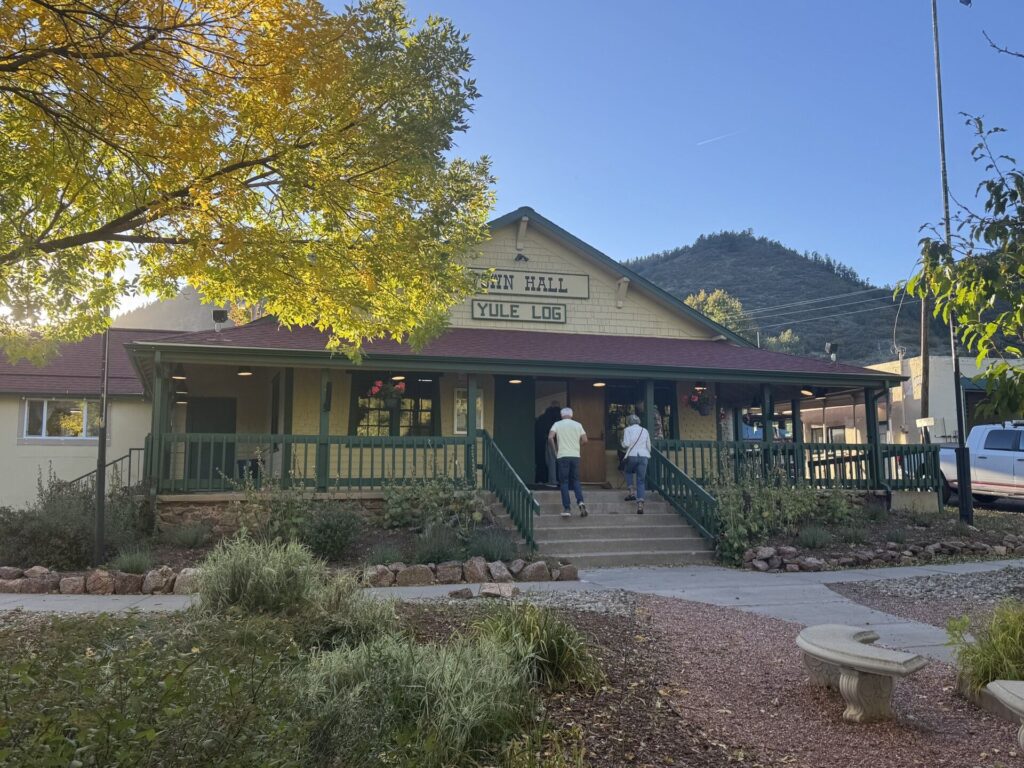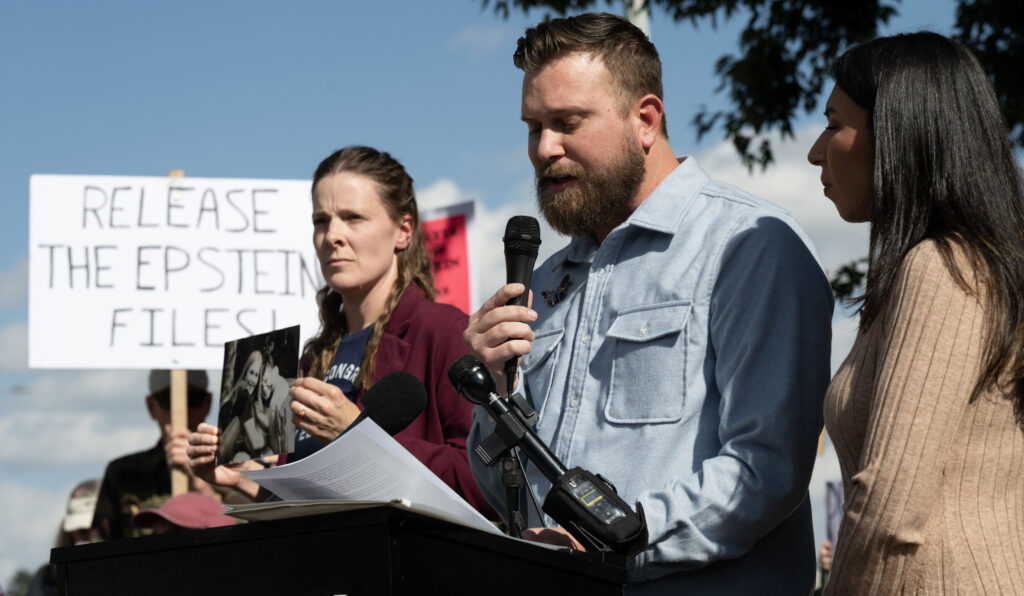Man to plead guilty in ‘killing spree’ of eagles, other birds for prized feathers | OUT WEST ROUNDUP
MONTANA
Man to plead guilty in ‘killing spree’ of eagles, other birds
A Washington state man accused of helping kill more than 3,000 birds — including eagles on a Montana Indian reservation — then illegally selling their carcasses and feathers intends to plead guilty to illegal wildlife trafficking and other criminal charges, court documents show.
Federal prosecutors say Travis John Branson and others killed about 3,600 birds during a yearslong “killing spree” on the Flathead Indian Reservation and elsewhere. Feathers and other parts of eagles and other birds are highly prized among many Native American tribes for use in sacred ceremonies and during powwows.
Branson of Cusick, Washington, will plead guilty under an agreement with prosecutors to reduced charges including conspiracy, wildlife trafficking and two counts of unlawful trafficking of eagles, according to court documents filed Feb. 27. The documents did not detail how many birds he will admit to killing.
A second suspect, Simon Paul of St. Ignatius, Montana, remains at large after an arrest warrant was issued when he failed to show up for an initial court appearance in early January. His attorney, Dwight Schulte, declined to comment.
Colorado Senate panel rejects Gov. Jared Polis' nominees to wildlife commission
The defendants are accused of selling eagle parts on a black market that has been a long-running problem for U.S. wildlife officials. Illegal shootings are a leading cause of golden eagle deaths, according to a recent government study.
Immature golden eagle feathers are especially valued among tribes, and a tail set from one of the birds can sell for several hundred dollars, according to details disclosed during a separate trafficking case in South Dakota last year in which a Montana man was sentenced to three years in prison.
IDAHO
Fewer obstetricians practicing since abortion ban
BOISE — More than 50 Idaho obstetricians have stopped practicing in the state since a near-total abortion ban took effect in August 2022, according to a newly released report.
Data compiled by the Idaho Physician Well-Being Action Collaborative also shows that only two obstetricians moved to the state to practice in the last 15 months, the Idaho Statesman reported on Feb. 20. Obstetricians provide health care during pregnancy and childbirth.
The number of obstetricians in Idaho decreased from 227 in 2022 to about 176 in 2023, a decline of 51 doctors, the report said.
The numbers “should concern every person living in or considering a move to Idaho,” the Idaho Coalition for Safe Healthcare, the collaborative’s parent group, said in a news release.
Final Colorado board rules on 'abortion reversal,' none declare it an accepted practice
Additionally, the report said two hospital obstetrics programs — at West Bonner General Health in Sandpoint and at Valor Health in Emmett — have closed since Idaho’s law banning abortion took effect, the report said.
A third hospital obstetrics program is in “serious jeopardy” of closing, the report also said.
Only 22 of 44 counties in Idaho have access to any practicing obstetricians, the report said. About 85% of obstetricians and gynecologists in Idaho practice in the seven most populous counties.
Idaho banned nearly all abortions after the U.S. Supreme Court overturned Roe v. Wade in 2022. Idaho makes it a crime with a prison term of up to five years for anyone who performs or assists in an abortion.
SOUTH DAKOTA
GOP lawmakers OK video to clarify abortion laws
PIERRE — South Dakota’s Republican-controlled legislature on Feb. 29 approved the creation of a video to outline the state’s abortion laws and to clarify when health care providers are legally allowed to intervene.
The bill passed by the state Senate in a 31-3 vote is also intended for the general public and would require the state Department of Health, which answers to Republican Gov. Kristi Noem, to create the informational video “and other materials” by Sept. 1. Creation of the video would take place in consultation with the state attorney general and legal and medical experts, describing how the state’s abortion laws should be applied.
South Dakota outlaws all abortions except to save the life of the mother under a trigger ban that took effect in 2022 after the U.S. Supreme Court overturned Roe v. Wade.
Dueling abortion measures could hit Colorado ballot this November
Republican Rep. Taylor Rehfeldt said she brought the bill for clarity to providers who had questions about when they could intervene to save the life of a mother.
The bill seeks to provide clarification without “the noise of politics around the abortion issue,” Rehfeldt said in an interview with The Associated Press. Efforts to clarify or redefine the statute itself likely would have failed, having little consensus around the issue, she said.
Noem spokesman Ian Fury, who is the governor’s “unborn child advocate,” said the administration will make the proposed video and materials available on South Dakota’s pregnancy resource website.
NORTH DAKOTA
Congressional age limit could be test case
BISMARCK — North Dakota would be the first state to set an age limit for U.S. Senate and House candidates under a measure that could go before voters in June, though it’s unclear whether a state limit on federal officeholders would violate the U.S. Constitution.
The move comes at a time of heightened interest in the topic given the advanced age of some congressional leaders and the leading presidential candidates in both parties. At least one political observer said the move could be an effort to create a test case for the nation.
“It’s been an issue in North Dakota, it’s been an issue nationally,” said measure chairman Jared Hendrix, who led a successful 2022 initiative that set term limits for North Dakota’s governor and Legislature. The sponsoring committee for the measure includes current and former lawmakers.
Supporters of the initiative on Feb. 9 submitted nearly 42,000 signatures, far more than the roughly 31,000 signatures required to qualify for the June 11 ballot. The secretary of state’s office has until March 15 to review the signatures.
The proposal states, “No person may be elected or appointed to serve a term or a portion of a term in the U.S. Senate or the U.S. House of Representatives if that person could attain 81 years of age by December 31st of the year immediately preceding the end of the term.”
University of North Dakota political science professor Mark Jendrysik has said the North Dakota initiative could be an effort to create a test case for the U.S. Supreme Court to see if the court would be willing to allow states to set congressional age limits on an individual basis.
The measure also has a “ballot advisory” to include candidates’ ages by the end of their term on the ballot if “superior law requires age-limited candidates to appear on the ballot.” The measure also appears to lay out a court process for denied candidates to challenge the age limit.
UTAH
Bill killed to ban Pride flags, other views from classrooms
SALT LAKE CITY — Utah teachers will be free to display LGBTQ+ Pride flags and other social, political or religious imagery after the state House blocked a bill on Feb. 26 that would have banned teachers from using their position to promote or disparage certain beliefs.
The Republican-led chamber defeated the proposal in a 39-32 vote as they raced to address hundreds of outstanding bills during the final week of the 2024 legislative session. Both Democrats and Republicans criticized the bill’s vague language and warned that it could stymie important lessons in critical thinking.
Educators would have been prohibited under the bill from encouraging a student to reconsider their sexual orientation or gender, and they could have faced punishment for affirming or refusing to affirm a student’s identity. Challenging a student’s political viewpoints or religious beliefs, even within the context of an educational exercise, also could have left a teacher vulnerable to a lawsuit.
In Colorado Springs school district divided over pronouns, staff conduct policy will look different than expected
Some teachers pleaded with lawmakers to reject the bill, which they said would make them afraid to speak openly in the classroom. But Rep. Jeff Stenquist, a Draper Republican and the bill’s primary sponsor, encouraged educators to view it as a tool to improve trust in the state’s education system.
The bill’s unexpected failure on the House floor comes a month after Republican Gov. Spencer Cox signed legislation limiting diversity, equity and inclusion programs at the state’s educational institutions.













